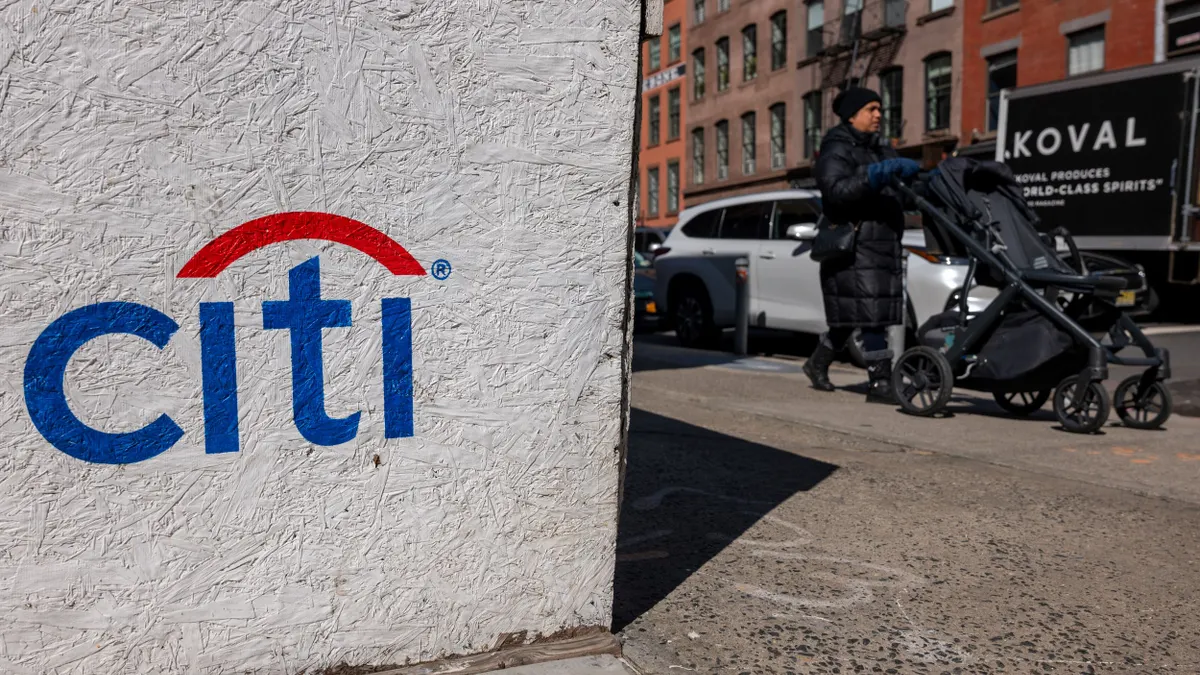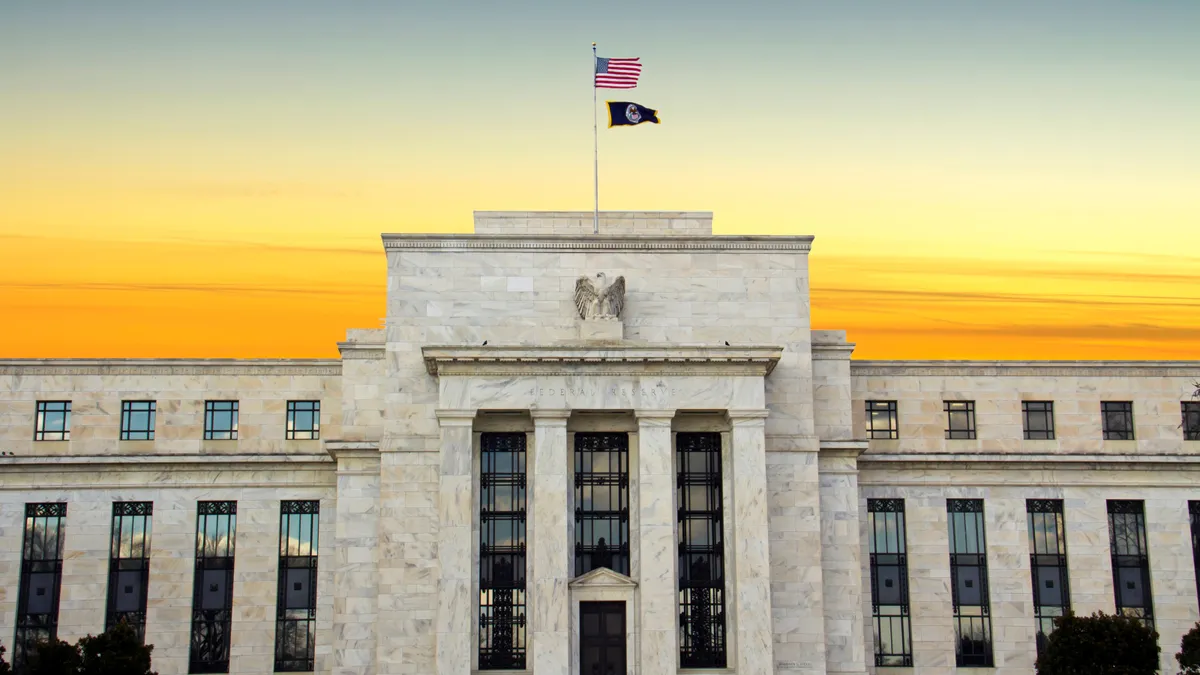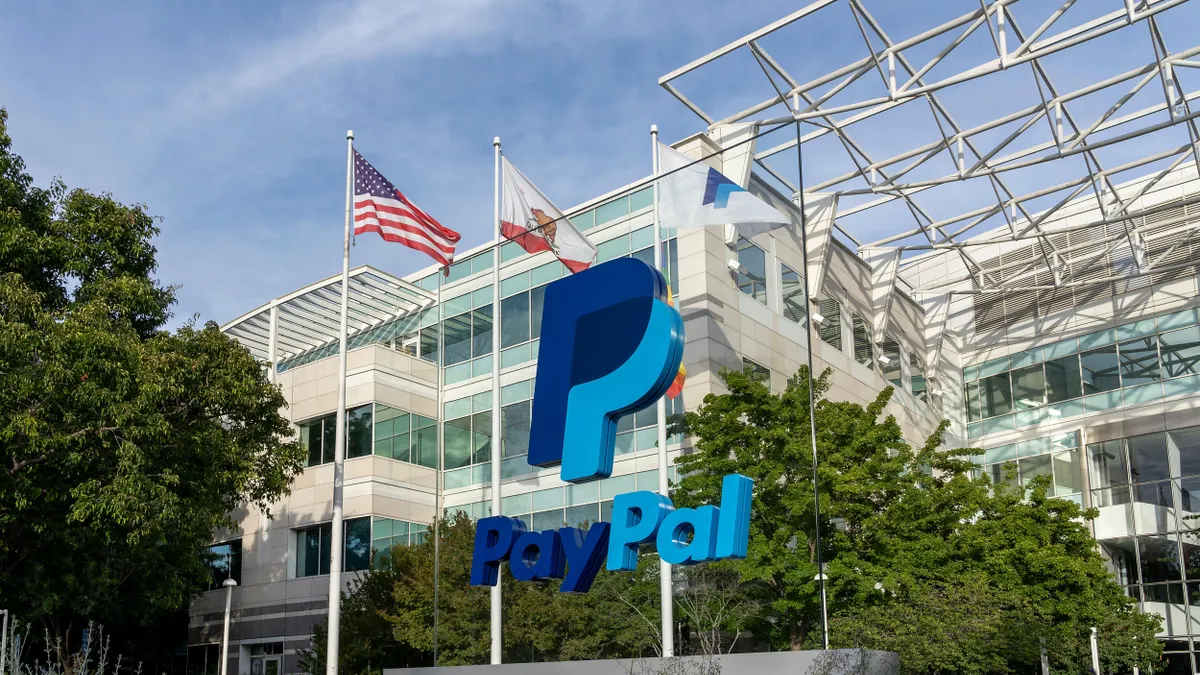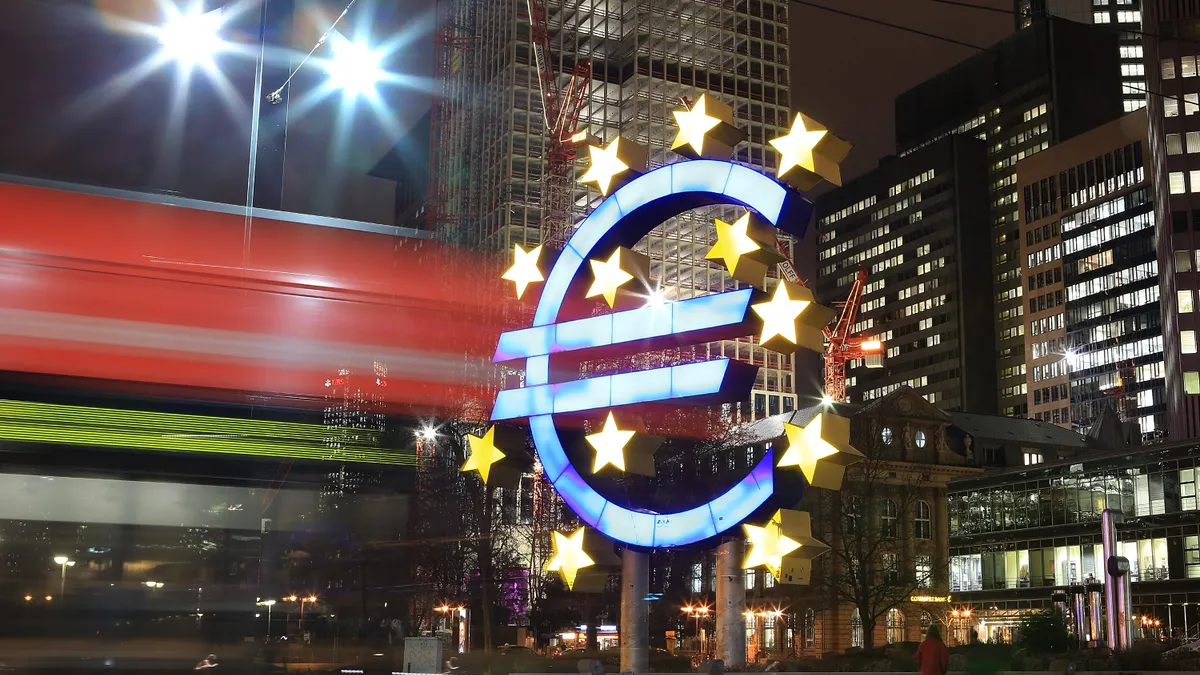It’s been one month since representatives of Germany’s Commerzbank and Italy’s UniCredit met to discuss the latter’s rapidly expanding interest in the former. Here’s a look at how the picture has evolved in the past 30 days, from four perspectives:
1. Commerzbank
When UniCredit used derivatives contracts to boost its stake in Commerzbank to roughly 21%, the German bank named its next CEO, floated more ambitious targets to its stakeholders and held firm.
That does not look to have changed.
"We really focus on us, on our standalone strategy," Commerzbank CEO Bettina Orlopp said Friday at a financial conference in Washington, according to Reuters. "We are not at an end."
"Just because a merger looks good on paper does not mean it will be executed well and can ultimately be successful and create value for our shareholders," she told Handelsblatt this month.
Orlopp said the bank would lose business because of the degree of client overlap between it and UniCredit – and that a potential deal would damage the German bank’s credit rating.
Before Europe can benefit from cross-border acquisitions, the EU must establish a single deposit protection framework, Orlopp said Friday, according to Bloomberg.
“You can’t create cross-border consolidation by consolidating institutions,” she said. “You first need to have the environment for it, and the environment means that we need to finalize the banking union, which has not taken place so far.”
Orlopp’s comments align with thinking from a leading banking trade group in Germany.
"If politicians really want to promote meaningful cross-border mergers in Europe, they need to strengthen the European single financial market," Heiner Herkenhoff, CEO of the Association of German Banks, told Reuters on Friday.
2. UniCredit
UniCredit has not said much in public since building its stake in Commerzbank. Marion Hoellinger, the CEO of the Italian bank’s German unit, told the Frankfurter Allgemeine Sonntagszeitung that UniCredit was not interested in a hostile takeover, but said a combination would benefit the midsize companies both banks serve as clients.
“Instead of two rather smaller banks for Mittelstand ... we would have the opportunity to create an even more powerful Mittelstand bank for Germany," Hoellinger said.
UniCredit CEO Andrea Orcel downplayed his increased stake in Commerzbank last month, calling it “an investment, nothing else.” Talks with the German lender reportedly did not include discussion of a tie-up, but Orcel has been frank about the advantages of a combination.
The Italian bank will undoubtedly field questions about its plans regarding Commerzbank when it announces its quarterly earnings Nov. 6 – the same day as the German lender, coincidentally. UniCredit reportedly postponed its earnings report from late October.
3. UniCredit’s advisers
Analysts at Jefferies suggest that if UniCredit were to make a bid for Commerzbank, it should wait until at least July to do so. According to German rules, if the Italian bank acts sooner than that, it would have to make an alternate cash offer to go along with a proposed all-share exchange, Jefferies said in a note seen by Bloomberg.
JPMorgan Chase analysts, by contrast, said last month that UniCredit should “move sooner rather than later” if it wants to acquire the bank.
But JPMorgan isn’t advising UniCredit. (It actually advised the German government on selling down the stake that ultimately went to the Italian bank. Germany is aiming to hire an additional adviser as to its options for the remaining 12% stake in Commerzbank that it owns, Bloomberg reported Monday.)
Jefferies, on the other hand, has built a 5.3% stake in Commerzbank through derivatives, according to a regulatory filing seen Friday by Reuters. The American investment bank was the most active trader of Commerzbank stock on Oct. 18, according to data compiled by Bloomberg.
UniCredit has been working with Jefferies to hedge more of its position in Commerzbank and shield itself from fluctuations in the German lender’s share price – which has actually increased by 51% this year.
Just because a bank holds a sizable share in another bank doesn’t mean it’s planning a takeover, though. Goldman Sachs, for example, holds a 6.7% stake in UniCredit, as of Sept. 30, according to a filing seen by Reuters. Asset manager BlackRock holds slightly more than 7%.
4. Other banks
Carlo Messina, the CEO of Intesa Sanpaolo, the only Italian bank bigger than UniCredit, said an acquisition of Commerzbank could be good for shareholders.
UniCredit, because it already has a presence in Germany from a previous acquisition, is the only bank apart from Commerzbank’s larger rival, Deutsche Bank, “that can create value through an integration with Commerzbank,” Messina said this month, according to Bloomberg.
Deutsche, meanwhile, has spoken with advisers, including Morgan Stanley, to help gauge responses to a potential UniCredit move on Commerzbank, Bloomberg reported. Deutsche CFO James von Moltke indicated last month the bank would prefer to stay out of it. One scenario that has emerged, the wire service’s sources said, is buying part or all of the German government’s 12% stake in Commerzbank.
Alberto Nagel, the CEO of Italy’s largest investment bank, Mediobanca, said a UniCredit acquisition of Commerzbank wouldn’t be a true cross-border deal – because of UniCredit’s existing footprint in Germany.
Nagel pointed to Spanish bank BBVA’s bid for domestic rival Sabadell as a "good example of what we could see in the future."
BBVA went directly to Sabadell shareholders in May with its roughly €12 billion bid.
BBVA adjusted that offer this month to account for interim dividends both lenders are paying to shareholders. But because BBVA’s share price has fallen, the premium is now around 7%, compared with 30% in May.
Sabadell’s leadership, meanwhile, said the bank could earn more than €1.6 billion in net profit this year if its second half is as fruitful as its first.
Consolidation may help strengthen the financial system, Sabadell Chair Josep Oliu said, but “increasing an institution's relative size in a market inevitably leads to increased oligopolistic power to the detriment of consumers.”
"My personal view is that today Sabadell and BBVA offer more value on their own than they would do together," Oliu said, according to Reuters.
BBVA’s chair, Carlos Torres Vila, however, argues that adding scale will help banks balance out the increased cost of technology and support the one-Europe philosophy.
“If we want European companies to generate the jobs and resources needed to underpin the region’s social model, then Europe needs banks with the scale and capabilities to fund them,” he wrote in the Financial Times. “The alternative is lower investment, an erosion of productivity, and ultimately, declining living standards as Europe loses ground to other regions.”
“The most pressing regulatory risk no longer is that banks might be ‘too big to fail’ but ‘too small to deliver,’” he wrote.





















